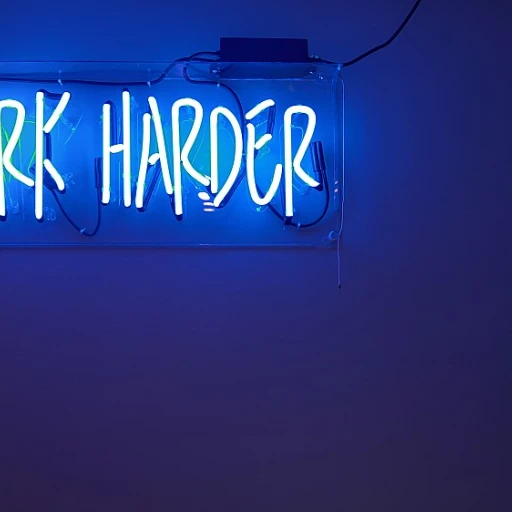
Understanding the importance of employee goals in HR
The Foundation of Employee Success
Setting clear employee goals is at the heart of effective human resources management. When employees understand what is expected of them, they are more likely to stay engaged, focused, and motivated in their work. Well-defined objectives help team members align their efforts with the company’s broader mission, creating a sense of purpose and direction.
Performance management relies on structured goal setting to drive both individual and team development. Managers use goals as a roadmap to guide employees, track progress, and provide meaningful feedback during performance reviews. This process is not just about meeting targets; it’s about fostering professional development and helping employees build the skills they need for long-term success.
Why Goals Matter in the Workplace
- Clarity and Focus: Goals help employees prioritize their work and manage their time more effectively.
- Motivation: Achievable objectives encourage team members to push their limits and strive for excellence.
- Development: Setting development goals supports continuous learning and skill improvement.
- Alignment: Individual goals connect to company objectives, ensuring everyone is working toward the same vision.
- Performance Review: Clear goals make it easier to measure employee performance and identify areas for improvement.
Examples of effective goal setting include using a goal setting template or adopting the SMART goals framework. These tools help managers and employees create specific, measurable, achievable, relevant, and time-bound objectives. Over time, this structured approach to goal management leads to higher employee performance and better business outcomes.
For those interested in how artificial intelligence is already shaping the way companies find and nurture talent, you can explore how AI is helping organizations identify and develop key skills in their workforce. This is just one example of how technology is transforming traditional HR practices, paving the way for more personalized and effective employee goal management.
Challenges in traditional goal-setting methods
Common Obstacles in Traditional Goal-Setting
Traditional approaches to setting employee goals in human resources often face several hurdles. Many organizations rely on outdated templates or generic objectives, which can make it difficult for employees to see how their individual goals connect to the company’s broader mission. This disconnect can lead to disengagement and a lack of motivation among team members.
Inconsistency and Subjectivity in Performance Reviews
Managers often struggle with consistency when evaluating employee performance. Without clear, measurable objectives, performance reviews can become subjective, leading to perceptions of unfairness. This subjectivity can impact employee development and hinder the identification of key skills that need improvement. It also makes it challenging to align professional development goals with actual performance outcomes.
Time-Consuming Processes and Lack of Personalization
Setting and tracking goals manually is time-consuming for both managers and employees. The process can involve endless paperwork, back-and-forth communication, and a lack of real-time feedback. Employees may feel their unique strengths and aspirations are overlooked, as traditional systems rarely adapt to individual needs or team dynamics. This can stifle growth and limit opportunities for long-term development.
- Generic goal-setting templates often fail to address specific employee needs
- Performance management systems may not provide timely feedback
- Managers may lack the tools to help employees set SMART goals that drive results
Examples of Missed Opportunities
Consider a company where all employees are given the same objectives each year. While this might seem efficient, it ignores the diverse skills and ambitions within the team. Employees who want to develop new skills or take on leadership roles may not receive the support they need. This can result in missed opportunities for both individual and company growth.
For more insights on how technology is transforming these processes, explore this resource on AI-driven HR transformation.
How artificial intelligence personalizes employee goals
Personalizing Objectives for Every Employee
Artificial intelligence is reshaping how companies approach employee goals and performance management. Instead of relying on generic templates or one-size-fits-all objectives, AI can analyze vast amounts of data to tailor goals to each individual. This means employees receive objectives that match their skills, experience, and professional development needs, making goal setting more meaningful and effective.
With AI, managers can move beyond traditional methods and create a more dynamic process for setting goals. For example, AI systems can review past performance reviews, current projects, and even team dynamics to suggest relevant development goals. This helps employees focus on areas that will have the biggest impact on their growth and the company’s success.
- Data-driven recommendations: AI can recommend specific goals based on employee performance data, ensuring objectives are both challenging and achievable.
- Continuous alignment: As business priorities shift, AI helps keep individual and team goals aligned with company objectives in real time.
- Personalized development: Employees receive suggestions for skills to develop, making professional development more targeted and effective.
For managers, this approach simplifies the process of setting goals and tracking progress. It also helps identify when employees need support or when it’s time to recognize achievements. By using AI, companies can ensure that performance goals are not only clear but also relevant to each team member’s role and career path.
Real-world examples show that AI-powered goal setting leads to higher engagement and better results. Employees are more motivated when they see how their individual goals contribute to the team and the company. For a deeper look at how AI-driven analytics are transforming HR, check out this resource on LMS analytics and artificial intelligence in HR.
AI-driven performance tracking and feedback
Real-Time Insights for Employee Development
AI-powered tools are transforming how organizations monitor and support employee performance. Unlike traditional approaches that rely on annual performance reviews, artificial intelligence enables real-time tracking of progress toward goals and objectives. This shift helps managers and team members identify strengths and areas for improvement as work unfolds, not months later.Personalized Feedback Loops
With AI, feedback is no longer generic or delayed. Systems analyze data from various sources—such as project management platforms, communication tools, and performance metrics—to provide tailored suggestions. For example, if an employee is working toward development goals related to communication skills, AI can flag relevant feedback or suggest training resources at the right time. This helps employees stay engaged and focused on their individual goals.Supporting Managers in Goal Setting
Managers often struggle to keep up with the progress of multiple team members. AI-driven dashboards aggregate key performance indicators and highlight which employees are on track with their goals and which may need additional support. This enables more effective goal setting and performance management, ensuring that no one falls behind.- Examples of AI-driven performance tracking:
- Automated reminders for upcoming deadlines or milestones
- Analysis of work patterns to spot potential burnout or disengagement
- Suggestions for adjusting goals based on real-time performance data
Making Performance Reviews More Meaningful
AI tools help make performance reviews more objective and data-driven. By continuously collecting and analyzing information, these systems provide a comprehensive view of employee performance over time. This approach reduces the risk of recency bias and helps ensure that achievements and challenges throughout the year are recognized. Employees benefit from a clearer understanding of how their work aligns with company objectives and long-term professional development goals.Key Takeaways for Teams and Companies
Integrating AI into performance management helps companies set smarter goals, track progress efficiently, and provide actionable feedback. This not only supports individual growth but also strengthens team performance and aligns employee efforts with broader business objectives. As organizations continue to adopt these technologies, the focus will shift from simply tracking performance to actively helping employees achieve their full potential.Addressing bias and fairness in AI-powered goal setting
Ensuring Fairness in AI-Driven Goal Setting
When companies use artificial intelligence to help set and track employee goals, it’s essential to address bias and fairness. AI can bring efficiency and consistency to performance management, but it can also unintentionally reinforce existing inequalities if not carefully managed. The way algorithms are trained, the data they use, and the objectives they optimize for all play a role in shaping outcomes for employees and teams.
- Data quality matters: AI systems rely on historical data to suggest individual goals or evaluate employee performance. If this data reflects past biases—such as underrepresentation of certain groups or skewed performance reviews—AI may perpetuate these patterns in new goal setting or performance review cycles.
- Transparency and explainability: Employees and managers need to understand how AI recommends development goals or evaluates progress. Clear communication about the criteria used for setting objectives or tracking performance helps build trust and allows team members to challenge outcomes if needed.
- Regular audits: Companies should routinely check AI-driven goal management tools for signs of unfairness. For example, reviewing whether certain groups consistently receive less ambitious goals or different feedback compared to others can help identify issues early.
- Human oversight: AI should support, not replace, human judgment in performance management. Managers play a key role in interpreting AI-generated suggestions, ensuring that individual goals align with both company objectives and employee development needs.
Examples from real-world organizations show that combining AI with human review can help employees set smart goals and achieve long-term professional development. By prioritizing fairness, companies can help employees at every level feel confident that their work and progress are evaluated objectively, supporting both team and individual growth.
Future trends in AI and employee goal management
Emerging Technologies Shaping Goal Management
Artificial intelligence is rapidly transforming how organizations approach employee goals and performance management. As technology advances, several key trends are emerging that will influence the future of goal setting and development in HR.
- Real-time analytics and adaptive feedback: AI systems are moving towards providing instant, data-driven insights. This helps managers and team members adjust objectives and performance goals in real time, making the process more dynamic and responsive to business needs.
- Personalized development pathways: With more sophisticated algorithms, AI can now recommend tailored professional development goals and learning opportunities. This supports individual growth and aligns employee objectives with company strategy, ensuring that both personal and organizational needs are met.
- Integration with collaboration tools: AI-powered goal setting is being embedded into everyday work platforms. This seamless integration helps employees track progress, receive feedback, and update their goals without leaving their workflow, saving time and improving engagement.
- Continuous performance review cycles: Traditional annual reviews are being replaced by ongoing, AI-driven performance management. This shift allows for more frequent check-ins, helping employees and managers address challenges and celebrate achievements as they happen.
- Enhanced fairness and transparency: As discussed earlier, addressing bias in AI is a priority. Future systems will likely include more transparent algorithms and audit trails, giving employees confidence that their individual goals and performance reviews are managed fairly.
What This Means for HR Professionals
Staying ahead of these trends is essential for HR teams aiming to help employees reach their full potential. By adopting AI-driven tools, managers can set smarter objectives, monitor progress more effectively, and support team members in achieving both short-term and long-term goals. Examples from leading companies show that integrating AI into goal setting templates and performance management systems leads to better alignment between individual and company objectives.
Ultimately, the future of employee goal management will be more personalized, data-driven, and transparent. HR professionals who embrace these changes will be well-positioned to help employees develop key skills, improve performance, and contribute to overall business success.













